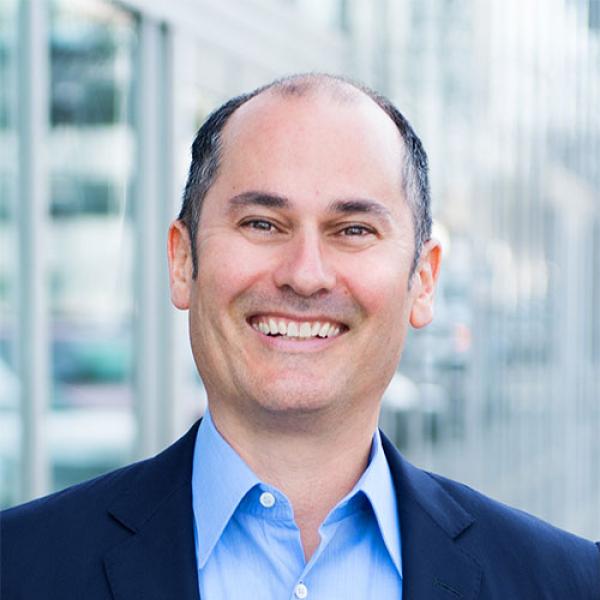
Let’s discuss the top ten skills you need to develop to build a career in Functional Medicine starting with why you’d want to be a Functional Medicine specialist in the first place. For me running a Functional Medicine practice and the ability to study Functional Medicine year after year, has been the most emotionally and spiritually supportive career I could imagine and I’d like nothing more than to help you enter into this profession. We are at an interesting point in the development of the field of Functional Medicine in that there are more patients wanting a Functional Medicine approach than there certified Functional Medicine practitioners to serve them. I’ve dedicated the past 14 years of my career specifically to helping people develop prosperous careers in Functional Medicine. Becoming a Functional Medicine specialist is a daunting task given that there is no clearly delineated route to follow.
Most of the new practitioners we train now at the Kalish Institute come to us stuck in a conventional medical practice and want to study Functional Medicine, become a Functional Medicine specialist and ultimately build a Functional Medicine Practice. Others already have a successful career in acupuncture or chiropractic or naturopathic medicine and want to incorporate Functional Medicine into their clinic. I’d like to point out there are three tracks one needs to follow in order to be successful and I hope in this article to lay out the groundwork so if you are interested in building a Functional Medicine practice you’ll be able to see what’s ahead of you.
If you don’t yet have any health care training and are starting from scratch then you have a variety of options. Medical school, osteopathic school, naturopathic college, becoming an acupuncturist or chiropractor, nurse practitioner, RD or nutritionist can call be entry points into a Functional Medicine career. Some people want to strictly focus on the lifestyle coaching aspect of the field in which case a coaching program training like Functional Medicine Coaching Academy will prepare you for your next steps. If you want to order labs and interpret them at the highest level then some license is required to be successful.
Schedule a 15-Minute Phone ConsultationTop 10 Skills:
- Patient communication ability, the ability to teach someone why something is important and to convince them to do something which is hard to do (eat properly, exercise, meditate).
- Program design competence, the ability to design a clinically impactful supplement program that a patient will actually be able to do.
- Having your own clinical model, the ability to have a consistent explanation for every patient that details why they are sick and how they are going to get better.
- Lifestyle coaching, the ability to tie every lifestyle change you want the patient to make to a lab value and the ability to motivate people to start and the continue with lifestyle changes.
- Lab interpretation, the ability to understand how human physiology and cell biology can be analyzed through lab work ups and one can see underpinnings for program design.
- Inspirational health habits, having your own health be of utmost importance, focus on your own diet, exercise, sleep and meditation practices.
- Good, but not exceptional managerial skills, ability to manage staff well enough to keep clinic running well.
- Operational excellence in terms of establishing office procedures and systems to keep things running.
- Leadership, visionary attributes, clear of your mission and life goals and able to inspire others through your own sense of life purpose.
- Clinical nutrition, this is area that takes decades of study to master, but is key in that it provides the underlying framework which then informs the rest of the work we do in Functional Medicine practices.
Also, taking a step back from these ten key steps, there is the bigger picture in play. At the 30,000 foot view, I focus on Functional Medicine as a movement for social change. Looking at toxin exposure issues, food quality issues, stress related issues, seeing that our modern lives have set ourselves up for the chronic illnesses confronting patients and knowing that we need to do more than just treat who’s in front of us, we need to be agents for social change.
In order to develop this rather ambitious list of skills I have developed my own training program platform which addresses these issues. We have two courses, the Kalish Institute one year Mentorship program and the My Practice Plan business course. These are good starting points. In addition I recommend the Institute For Functional Medicine’s curriculum to get the academic understanding and science behind this field. And in addition to IFM certification and my courses most people end up taking at least a half dozen other classes depending on how they want to direct their career. Other courses that are notable include Sam Yanuck’s work on immunity and autoimmune diseases, Nalink Chilkov’s approach to working with cancer patients, Chris Kresser’s work on ancestral diets, Sachin Patel’s business course, Peter Osborne’s conferences on business development, Nathan Morris’ work on the genome, Ben Lynch’s work on the same. Each supplement company and lab testing company has their own educational content as well.
Schedule a 15-Minute Phone ConsultationThere is no one single program or one way to accumulate all the skills you need and the Kalish Institute plays a small but key role in providing certain aspects of what you’ll need to know.
Looking at this from another angle, let’s think through the way in which this educational transformation usually plays out.
Most practitioners have an“aha” moment. They have a sudden realization that Functional Medicine makes sense, helps people and is what they want to do. Then they face this huge and seemingly insurmountable issue of how to make it happen. Left alone without entering into some type of training program that has community support doesn’t work. People that go that direction rarely are successful. Finding the right training program and enthusiastically adopting the role of student will, in a year or two yield results. Assuming you have already had all the basic training in physiology from medical school, naturopathic school, a nurse practitioner or chiropractic degree I’d give it a 1 -2 year time frame to grow a successful Functional Medicine program with a base education already in place.
One of the key first steps is combining an intellectual or academic understanding of this work (with a program like IFM’s certification) with a hands-on practical application program (like mine or one of the other’s I mentioned earlier). Once you have a thorough understanding of the science behind this work and also have worked with an initial round of patients under the supervision of a mentor, then you can focus on developing your clinical model and your business model. The work isn’t brain surgery, I’m sure if you are in a brain surgery program you wouldn’t want to start doing brain surgery for the first time prematurely and would wait for quite a few years, until you had really mastered the subject. With the supplement prescribing and lifestyle changes we use in Functional Medicine the barrier to entry is low, meaning you can start with easy patients even before you feel you’ve completely mastered all the details of this work. And, again, if you are in a mentorship program you can start to learn how to do this work as you learn about the science and research behind what you are doing.
You don’t need to have a degree in metallurgy to swing a hammer and hit nails and build a house. You may want to understand about the principles of metal making at some point in your carpentry career, in much the same way you can start your clinical application training in Functional Medicine as you are learning the academic and research findings that support what we do. I do feel that a strong science background in clinical nutrition and an IFM based training should not be skipped over or ignored because you’ll find as you get to more and more advanced levels of treatment program design and lab interpretation you’ll need that background or you won’t really understand what’s going on.
We wear many hats in Functional Medicine from doctor to teacher, from business person to researcher and there are many moving parts you’ll need to master. These days there are many people like myself doing their best to offer new comers all the potential training they may need. Functional Medicine practices across the world are experiencing explosive growth and it’s an exciting time to get involved so if you have an interest I’d strongly suggest you pursue your education in this field.
Schedule a 15-Minute Phone Consultation Learn the pros and cons of functional medicine.Here is Part 2, Building a Career and Practice In Functional Medicine

